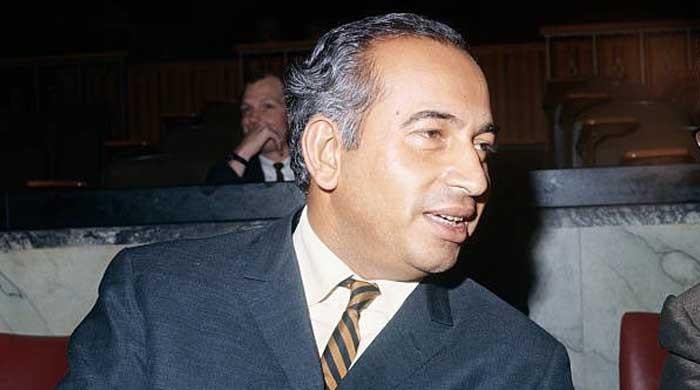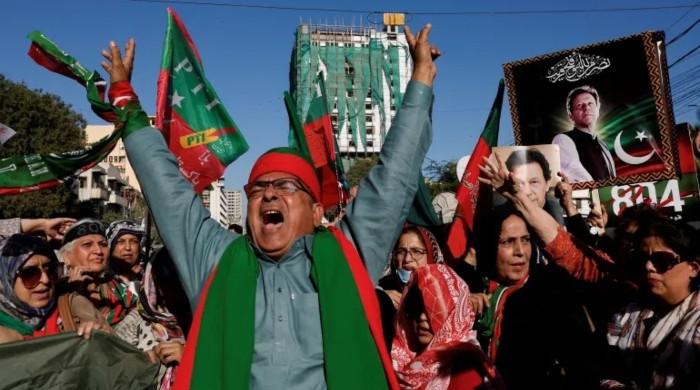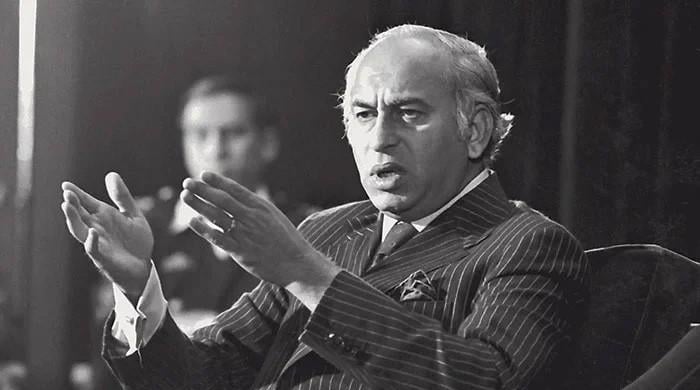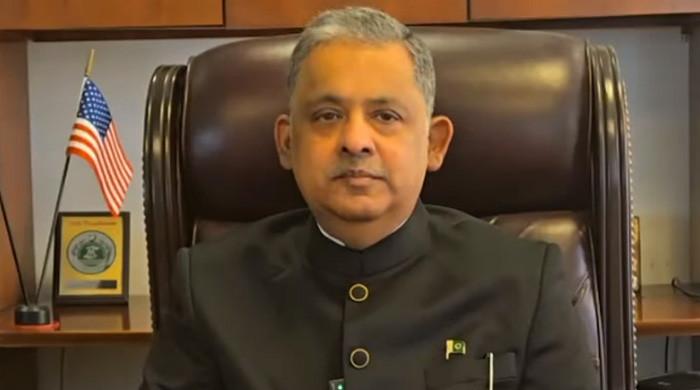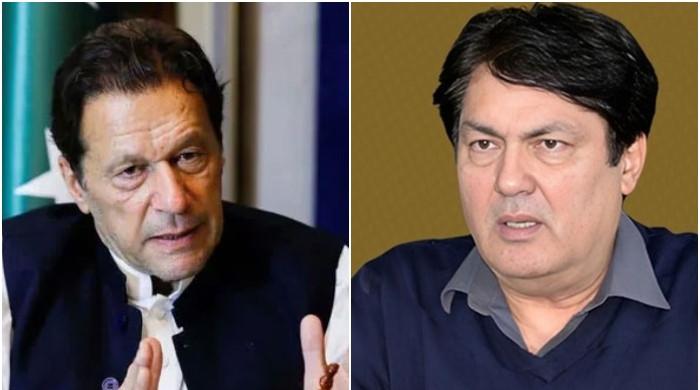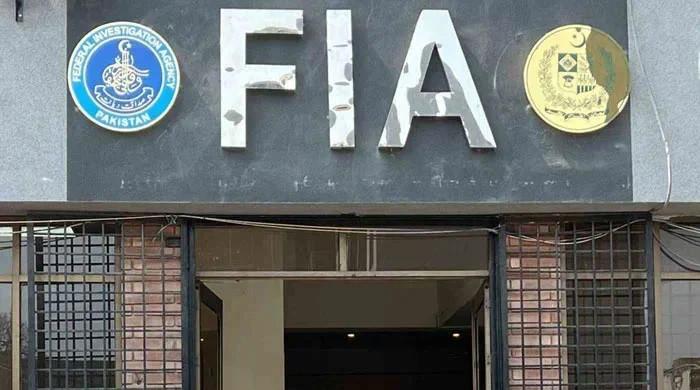'No objection' against Imran Khan's hearing in Attock jail in cipher case: law ministry
Ministry's notification comes amid reservation of verdict by IHC on PTI chief's plea challenging trial in jail
September 12, 2023

- Ministry's notification comes amid the reservation of verdict by IHC.
- IHC had reserved verdict on PTI chief's plea challenging trial in jail.
- "Judge asked for hearing in Attock jail due to security concerns."
ISLAMABAD: The Ministry of Law and Justice on Tuesday said that it had “no objection” against the hearing being held for Pakistan Tehreek-e-Insaf (PTI) Chairman Imran Khan’s trial in the cipher case under the Official Secrets Act in Attock jail.
“In light of rules and orders of [the] Lahore High Court, Lahore, Volume Ill, Instructions to Criminal Courts Chapter-l, Practice in trial of criminal cases Part A, General (3) read with section 352 of the Code of Criminal Procedure, 1898 and on the request of Judge, Special Court (Official Secrets Act, 1923), Islamabad, dated 12.09.2023, [The] Law & Justice Division has “No Objection” on conducting the trial of the accused (Mr. Imran Ahmed Khan Niazi), due to security concerns, in District Jail Attock under the Official Secrets Act, 1923 (Act No. XIX of 1923) by the said Judge on 13th September, 2023,” read the notification of the ministry.
The ministry’s notification came despite the Islamabad High Court (IHC) reserving its verdict on Khan's petition challenging the Law Ministry's notification to hold his trial in Attock jail.
The deposed prime minister — who is in judicial custody till September 13 in the cipher case — filed a plea in the IHC against the law ministry's notification through his counsel Sher Afzal Marwat.
Khan has been in prison since his conviction in the Toshakhana case on August 5 for failing to properly declare gifts he received while in office.
The IHC had overturned a lower court's decision to jail him for three years with an Rs100,000 fine — a judgment that kept him from contesting upcoming elections — he remains behind bars due to his judicial remand in the cipher case.
On August 18, Khan was booked under the Official Secrets Act 1923 in the cipher case after the Federal Investigation Agency (FIA) invoked Section 5 of the said law.
The counter-terrorism wing of the FIA had registered the case against the former premier after ascertaining his deliberate involvement in misusing the classified document following a probe.
Subsequently, a special court was established under the Official Secrets Act which sent Khan on judicial remand till August 30, later extending it to 14 days till September 13.
In his petition, the PTI chief requested the court to declare the notification null and void as it was "illegal" to shift the court to Attock jail.
IHC Chief Justice Aamer Farooq reserved the verdict on the plea challenging the ministry's notification after hearing the arguments today. The court had sought an explanation from the respondents on the notice.
Cable gate
The controversy first emerged on March 27, 2022, when Khan — just days before his ouster in April 2022 — brandished a letter, claiming that it was a cipher from a foreign nation, which mentioned that his government should be removed from power.
He did not reveal the contents of the letter nor did he mention the name of the nation that had sent it. But a few days later, he named the United States and claimed that Assistant Secretary of State for South and Central Asia Affairs Donald Lu had demanded his removal.
The cipher was about former Pakistan ambassador to the US Asad Majeed's meeting with Lu.
The former prime minister, who was removed from power via a parliamentary vote in April last year, claiming that he was reading contents from the cipher, said that "all will be forgiven for Pakistan if Imran Khan is removed from power".
Then on March 31, the National Security Committee (NSC) took up the matter and decided to issue a "strong demarche" to the country for its "blatant interference in the internal affairs of Pakistan".
Later, after his removal, then-prime minister Shehbaz Sharif convened a meeting of the NSC, which came to the conclusion that it had found no evidence of a foreign conspiracy in the cipher.
The cipher case against the former premier became serious after his principal secretary Azam Khan stated before a magistrate as well as the Federal Investigation Agency (FIA) that the former PM had used the US cipher for his 'political gains' and to avert a vote of no-confidence against him.
The former bureaucrat, in his confession, said when he provided the ex-premier with the cipher, he was "euphoric" and termed the language a "US blunder". The former prime minister, according to Azam, then said that the cable could be used for "creating a narrative against establishment and opposition".
Azam said the US cipher was used in political gatherings by the PTI chairman, despite his advice to him to avoid such acts. He mentioned that the former prime minister also told him that the cipher could be used to divert the public's attention towards "foreign involvement" in the opposition's no-confidence motion.





